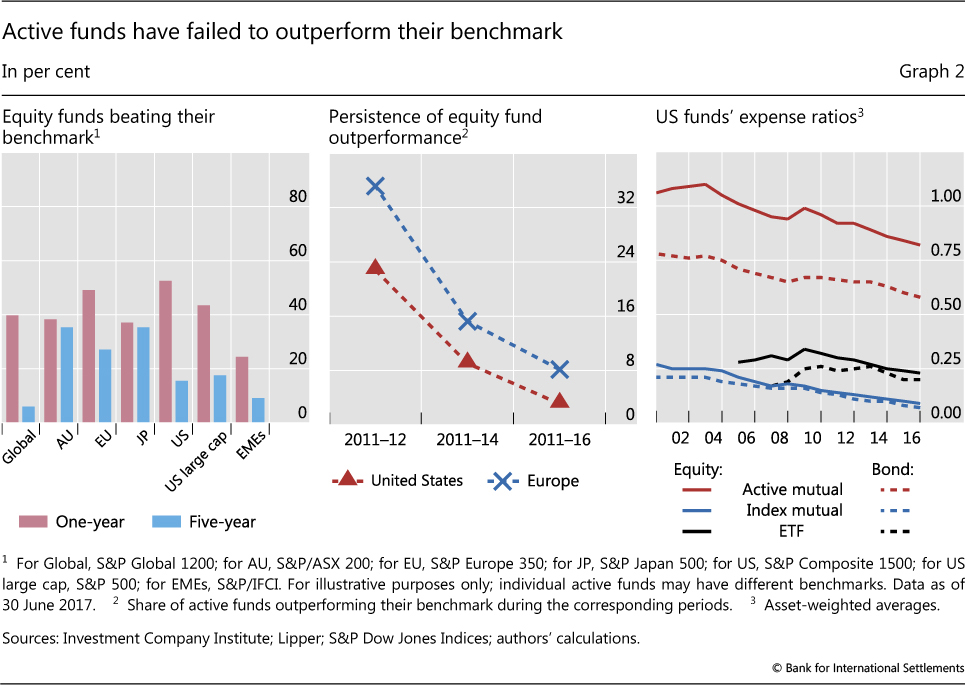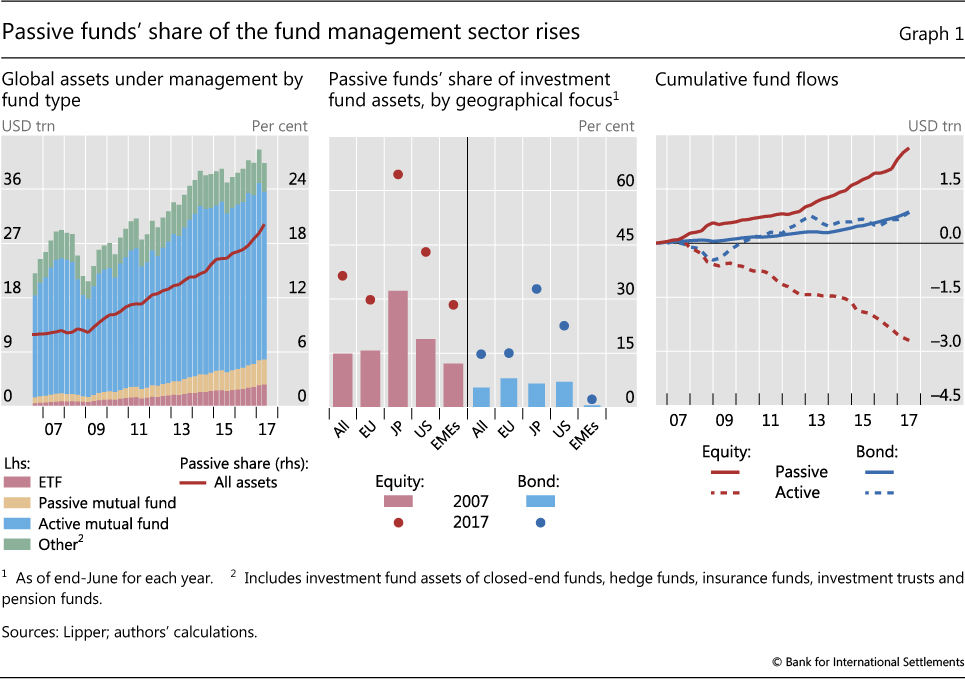Take-homes from the BIS report:
Bond ETFs can be dangerous in a way that equity ETFs cannot
The effects ETFs have on share prices needs further study
Active vs. passive is a more important distinction than mutual fund vs. ETF
Corporate bond indexes are racked with a major design flaw and ETFs that track them could increase systemic risk, the BIS has warned.
In a new study, the Bank for International Settlements, the central bankers central bank, said important weaknesses in how corporate bond indexes were made meant they were less suited to ETFs than their equity tracking counterparts. Worse, the design issues meant corporate bond indexes could increase systemic risk by encouraging dud companies to pile on debt.
Corporate bond indexes weight corporate bonds by how much of the total debt market the company that issued them's debts take up. For example, if Company A's debts make up 5% of the total corporate debt market, then Company A's debts get a 5% weighting in the index. If Company A goes even further into debt, such that its debts take up 6% of the corporate debt market, then the index will give its debts a 6% slice of the index.
This weighting scheme allows corporate bond indexes to reflect the debt market as a whole. Yet it raises obvious problems, the BIS pointed out.
"As passive bond funds mechanically replicate the index weights in their portfolios, their growth will generate demand for the debt of the larger, and potentially more leveraged, issuers," the report said.
"From a financial stability perspective, there is a concern that this can act procyclically and encourage aggregate leverage."
A related issue, the BIS said, is how companies might cope if they're removed from an index. Index inclusion increases demand for companies' debts, as index-tracking funds like ETFs will start buying them up. This, in turn, allows companies to borrow money more cheaply (as competitive bidding drives down interest rates).
While this may be great for companies in the index, if they're removed from the index - for reasons like a credit downgrade - they can be in for a double whammy: having to pay higher interest rates by virtue of having a lower credit rating; and having to pay an additional premium by virtue of being dumped from the index.
While expressing a measure of confidence in equity ETFs, the BIS did not let them off the hook completely, saying more research on how they affect share prices was needed. The group cited new studies that found S&P 500 tracking ETFs had increased correlations of those stocks.



